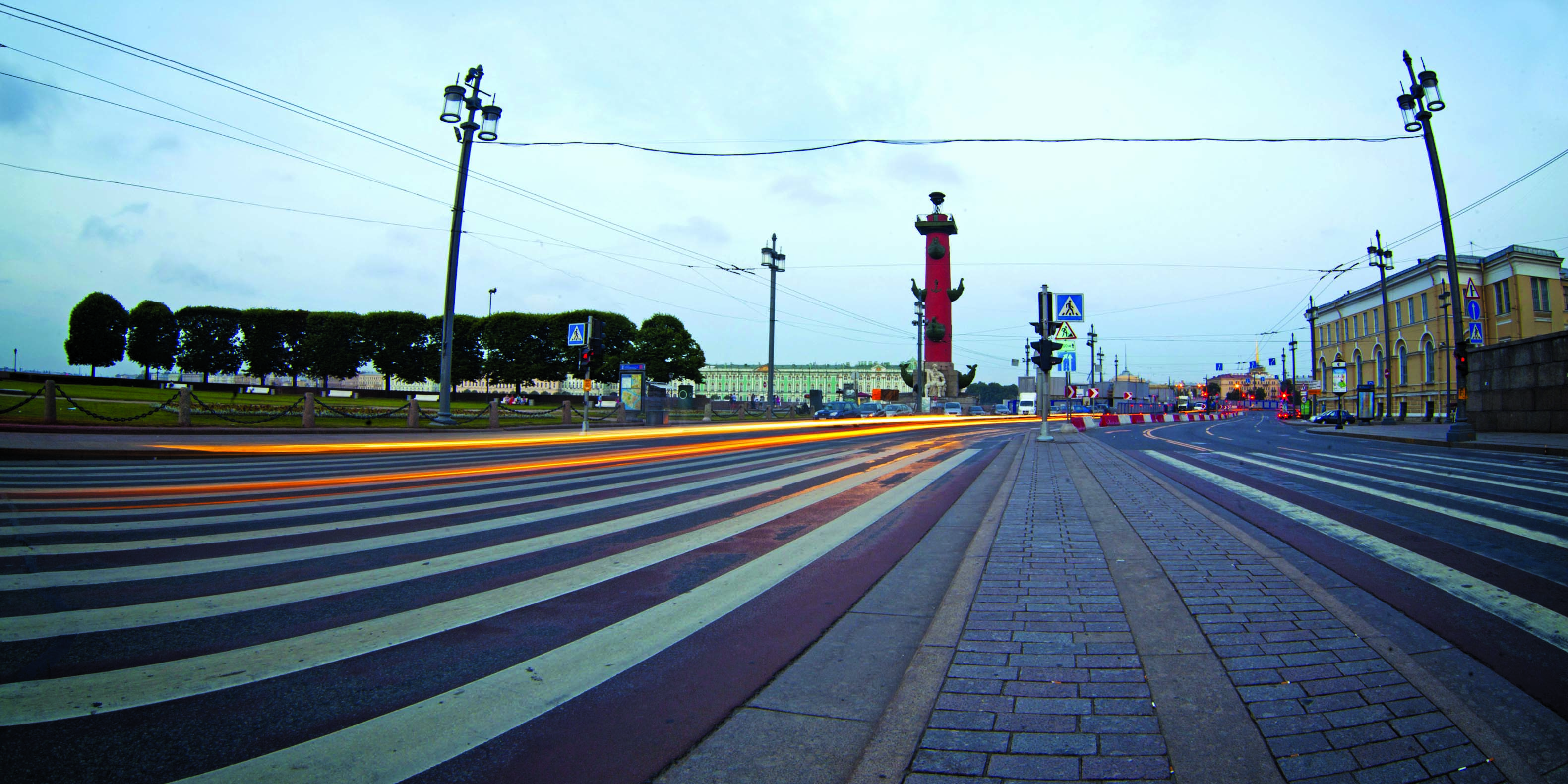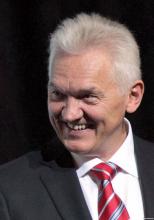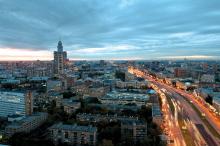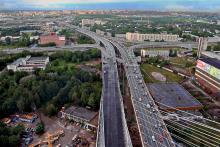
I now looks as if Russia’s most ambitious project in the field of road building in recent years, the building of a new high-speed road link between Moscow and St Petersburg, the country’s largest cities, will not be complete in time. The project was set up by the Russian government and several private investors.
According to initial state plans, building of the new road should have been completed by May 2018 prior to the beginning of the 2018 World Cup in Russia. However, due to numerous technical and financial difficulties, the official commissioning of the completed road will be delayed at least until the beginning of 2020.
To date, the volume of investment in the building of the new road already amounts to 450 billion rubles (US$7.8 billion), of which more than 80% of which was provided by the Russian Government.
Sergei Kelbakh is head of Russian Highways (
The biggest problems have been associated with building the second section of the road, which passes through the Moscow and Tver regions. This section bypasses the cities of Solnechnogorsk and Klin, both of which are located in the Moscow region.
According to initial state plans, building of the section should have been started in early 2016. However due to serious problems during the selection of a contractor for the project and lack of applications from potential bidders, construction works have started only recently.
The contractor for the 89km second section of the road was finally selected only after the decision of Avtodor to increase the value of the contract up to 74.6 billion rubles ($1.29 billion). Avtodor also opted to reduce the sum that should have been directly invested by the contractor by nearly half to only 7.5 billion rubles ($130 million).
The contract was granted to Transstroymekhanizatsia, which is a subsidiary of
In the meantime, the situation with the third section of the road, (which should bypass the city of Tver), is more complex and its construction will be started only in 2020. Prior to this, drivers will have to use the M-10 federal highway connecting Moscow and St Petersburg, which continues on to the border with Finland, as it passes through the city of Tver.
However Avtodor has revealed that there are also serious problems with the construction of the northernmost section of the route, which should link St Petersburg and the village of Myasnoy Bor in the Novgorod region. This section has an overall length of 138km and its construction should be completed by June 30th, 2018, two weeks after the beginning of the World Cup.
Meanwhile construction of the last section of the road, leading directly to St Petersburg, could be also delayed. Building work is being carried out by a partnership, Magistral of Two Capitals. The company is owned jointly by the Russian investment holding business
The problems with the implementation of the entire project are also affected by the activities of
This is not the first project to be implemented by ICA in Russia. Its previous projects include building the new terminal at the Pulkovo Airport in St Petersburg, as well as construction of the central section of the Western High-Speed Diameter route.
However in mid-December 2016, Russian media reported that there were financial problems for ICA, which resulted in delayed payments to its subcontractors for some months.
According to the State Labor Inspectorate of the St Petersburg region, total debts of the company are currently estimated at about 4 billion rubles ($69.3 million).
Since September 2016, two dozen lawsuits against ICA for a total of more than 156 million rubles have been submitted to the arbitration courts of St Petersburg and the St Petersburg region, and it is reported that similar claims against the company have already been submitted by its subcontractors, working with it during the construction of the Western High-Speed Diameter.
Little interest from private investors
In the meantime, contrary to initial state expectations, the interest of private investors for the building of the new road remains small. According to initial plans of the Russian government, up to 35% of funds for the building of the new road should have been provided by private investors, however in reality this sum does not exceed 20.4%.
The first section of the road is in use and was built by the North-Western Concession Company, formed by Vinci together with Arkady Rothenberg’s business and the N-trans holding company.
The remaining four sections of the road are being built on the basis of long-term investment agreements. With these, the contractor is committed to invest its own funds in the project, focussing on maintenance and repair of the road until the return of its investment. Mostotrest became the contractor for these sections and invested only 10- 16% of the total volume of financing required.
At the same time, most of the investments from private investors in the construction of M-11 are quasi-public funds. For example, the North-Western Concession Company received a 20-year loan of 29.2 billion rubles ($506 million) from state-owned Vneshekonombank and Sberbank, which also bought about 70% of the company's bonds. A similar situation concerns the Magistral of Two Capitals consortium, This received 10.2 billion rubles ($176.8 million) in the form of loans from the state bank VTB and issued bonds for the sum of 13 billion rubles ($225.3 million), most of which was purchased by the APF VTB Pension Fund. As a result, the share of investors' own funds in concession projects was 13.4% and 8.7%, respectively.
In the meantime, according to Russian road sector analysts, the predicted toll charges for drivers using the road will be high. Two years ago Kalbakh predicted that the trip would cost the driver of a car from 1,000-1,100 rubles. However, according to some sources close to Avtodor, final prices will vary from 3,000-3500 rubles (US$52-61). This cost has already been criticised by Russian president Putin as being too high.
Two weeks after the announcement by the president, the Russian Government limited tariffs, setting the maximum possible cost of travel on toll roads. For travel on roads, built by concession, the price will be 12 rubles/km for cars and 38.5 rubles/km for trucks. For all other toll roads in Russia, the tariffs are lower although the government has allowed for cost increases each year, depending on inflation. And the toll charges on the M-11 route have already been lowered to meet the new requirements.
The highway has been a long time in development as the concept for the new route was first put forward around 15 years ago. However actual implementation of the project began only in 2010. It is worth noting too that the work went ahead despite concern over some of the environmental factors. Despite public protests, the construction project also resulted in the clearance of part of the Khimki forest, one of the largest forests in the Moscow region.









